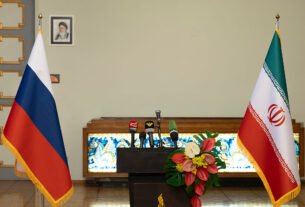Today’s edition is powered by FIGIEFA
Upcoming European Parliament plenary vote on End-of-Life Vehicles Regulation
—————————————————————————————————————
Negotiated for a quarter of a century, the “Jurassic” EU-Mercosur trade deal is lumbering back to life – just as Europeans scramble for new allies in an increasingly fractured global trade order.
For Brussels insiders, the temptation to call every breakthrough “historic” is irresistible. But as Commission officials told reporters on Wednesday, this time the label is very fitting when applied to the almost mythical trade creature of an EU-Mercosur deal, which has been in the works since 1999. If all goes to plan, it could become reality by the year’s end.
While von der Leyen took Europe by surprise in December when she flew unannounced to sign the deal in Montevideo, Uruguay, a political agreement had in fact already been reached in 2019.
But today marks a milestone as the first legal steps towards ratification were taken.
It was up to Maroš Šefčovič to spruce up this trade relic and repackage it as a shiny new agreement fit for 2025 onwards.
“I want to assure everyone this is actually a new Mercosur agreement,” said the trade chief, directly addressing concerns expressed by farmers. For Mercosur to stand any chance, much had to change.
The deal with Latin America has haunted generations of policymakers and has been the target of years-long protests – bringing it to life has only grown harder as the years have gone by. Free trade agreements have evolved greatly since Mercosur was first proposed.
For starters, there’s the environment. While some are legitimately concerned about free trade fuelling export-oriented farming that could increase deforestation in the Amazon and deplete natural resources, green concerns often sit alongside protectionist instincts.
The same EU countries and lobbyists that oppose Mercosur in the name of the environment and human health are often those who also push back on tighter pesticide restrictions, anti-deforestation rules, and restoration laws.
At the same time, modern, green, and socially respectful trade agreements à la New Zealand – the EU’s trade darling – are hard to replicate. This is particularly true when dealing with countries like Brazil, which view European dictates on the environment as neo-colonial.
Even the negotiator of the EU’s next landmark deal – with India, an even bigger prize than Mercosur – has stressed how hard it is to hammer out an agreement that is satisfactory to both sides.
No surprise then that Mercosur’s green credentials haven’t pleased everyone – whilst the December 2024 text made the Paris Agreement a core condition, it also made it easier to comply with the EU’s new anti-deforestation rules.
To get the deal over the line, it now includes stronger safeguards for agriculture, long the most controversial component. This would, it was hoped, make Mercosur palatable to its staunchest opponents (France, Poland, and Ireland).
After all these years, we might finally see the birth of this legendary trade deal (with the blessing of MEPs and member countries). All we want for Christmas…?
Roundup
Europe seeks Asian anchor – The Commission pledged to strengthen trade links with a range of Asian countries to counterbalance the ‘power-based’ policies pushed by the US and China.
Has hope dried up? – If Europe started the year with a long to-do list, at least there was optimism for a “European Moment”. That hope now seems further off than ever.
Falling short of Draghi’s word – Only a tenth of the tech recommendations from Mario Draghi’s report on EU competitiveness have been implemented after one year, according to a Renew report.
Across Europe
Greenland gets the big bucks – The European Commission proposed doubling financial support to Greenland, for a total of more than €530 million under the next seven-year EU budget.
French socialists return from irrelevance – The Socialist Party (PS) may be a shadow of its former self, but it has once again become a central player in French politics.
Italy’s most controversial bridge – NATO scrutiny of Italy’s €13.5 billion Messina bridge has fuelled tensions as the US warns against creative accounting to meet defence spending pledges.





